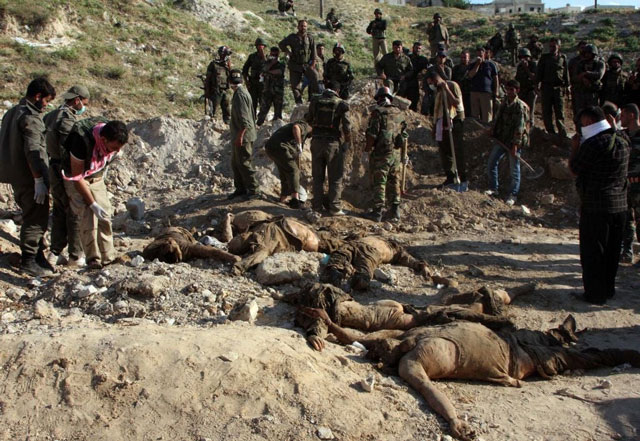Daijiworld Media Network - Suweida
Suweida, Jul 19: The southern Syrian city of Suweida has been left devastated after five days of intense sectarian violence and alleged atrocities by government forces and foreign fighters. More than 590 people have been killed since clashes erupted last Sunday between Druze and Bedouin communities, following the abduction of a Druze merchant near Damascus.
Residents like 45-year-old Rima, speaking under a pseudonym, described scenes of "barbaric" violence and fear. “There were bodies everywhere outside our building,” she said in a phone interview, adding that armed forces went door-to-door, targeting civilians and looting homes. “We kept waiting for people to come into our house and decide whether we should live or die.”

The Syrian Observatory for Human Rights has reported at least 594 deaths, including 154 Druze civilians. The monitoring group claims 83 Druze civilians were executed by government forces, while Druze fighters killed three Bedouin men in retaliatory attacks.
Interim President Ahmed al-Sharaa, who came to power after Bashar al-Assad’s fall last December, deployed security forces on Tuesday to restore order. However, residents accuse those very forces of looting, torching homes, and killing unarmed civilians. In some neighborhoods, foreign Islamist fighters reportedly joined the violence, branding Druze residents as "infidels" and desecrating religious symbols like moustaches worn by Druze sheikhs.
Nayef, another resident and government employee, said he witnessed horrifying scenes. “They looted wealthy homes, killed people, and left bodies lying outside for days,” he said. Videos circulating online appear to confirm his claims, showing armed men shooting kneeling civilians and humiliating Druze elders.
The United Nations Human Rights Office confirmed the killing of at least 13 people on Tuesday during a family gathering, and six men reportedly executed near their homes by men affiliated with the Syrian government.
President Sharaa, in a televised address, vowed to protect the Druze community and punish those responsible, blaming the violence on “outlaw groups.” However, many locals remain unconvinced. “It’s all lip-service,” said Nayef. “They speak of freedoms and accountability, but they are all lies.”
Residents also expressed conflicting views on Israel’s role. While some credited Israeli airstrikes for preventing further massacres, others remained critical. “Nobody wants Israel. We are patriotic people,” Nayef insisted, voicing the deep mistrust many feel toward foreign intervention, even when it comes under the guise of protection.
With the power still out, the internet down, and a heavy death toll, Suweida is left shattered — not only by the violence, but by the growing feeling of abandonment and betrayal.